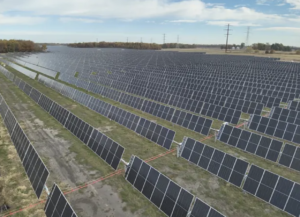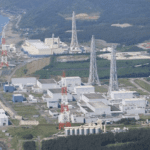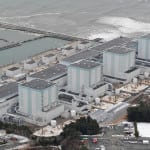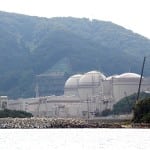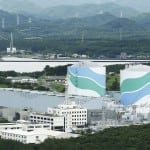Japan’s nuclear watchdog agency has given Tokyo Electric Power Co. (TEPCO) conditional approval to restart two reactors at its Kashiwazaki-Kariwa plant. The units were taken offline after the Fukushima Daiichi meltdown in March 2011.
The country’s Nuclear Regulation Authority (NRA) on September 13 said TEPCO could restart the units after it provides a detailed plan of how it can ensure the operational safety of the boiling-water reactors, the same type that operated at Fukushima, which was crippled after an earthquake and tsunami struck the region, resulting in flooding at the nuclear plant. The Asahi Shimbun newspaper reported the NRA’s action.
A district court in March of this year ruled that TEPCO and the Japanese government were aware of risks at Fukushima and could have taken action to avoid the meltdown of three reactors.
TEPCO Under Scrutiny
Units 6 and 7 at the Kashiwazaki-Kariwa plant in Niigata Prefecture were among 54 nuclear facilities in Japan—the country’s entire nuclear fleet—ordered to shut down after the 2011 earthquake. TEPCO, which operated the Fukushima plant, drew particular scrutiny for its handling of the disaster. Radioactive water has continued to accumulate at Fukushima and there has not been a decision on what to do with the material.
The Kashiwazaki-Kariwa plant has seven reactors. Unit 6 and Unit 7, each with 1.36 GW of generation capacity, began service in 1996 and 1997, respectively.
Five nuclear units have come back online in Japan with the backing of Prime Minister Shinzo Abe, who has said the country needs nuclear power to help its economy. Abe’s government has said it supports restarting reactors once their safety is assured, and his administration has set a target of having between 20% and 22% of the country’s electricity from nuclear power by 2030.
Nuclear output currently provides just less than 2% of Japan’s power, well below the 30% it provided prior to the 2011 earthquake.
Niigata Governor Ryuichi Yoneyama has said he will not allow any nuclear plants in the prefecture to return to service until the investigation into the Fukushima disaster is complete, which could delay any restart at Kashiwazaki-Kariwa. Although TEPCO has the NRA’s conditional approval, the utility needs consent from local government for a restart.
Multiple Japanese media have reported that TEPCO has told regulators it will complete decommissioning of the Fukushima facility, but has not outlined how it will deal with the radioactive water at the site.
Stringent Safety Regulations
The NRA action Wednesday is the first time that TEPCO units have passed the more-stringent regulations on nuclear reactors set by the regulatory agency after Fukushima. Units 6 and 7 at Kashiwazaki-Kariwa also are the first boiling-water reactors to pass the new regulations. The NRA has said it thinks TEPCO has the technical ability to operate the plant, but has ordered the utility to provide a detailed plan of how it will ensure safe operation, after concerns TEPCO put profits above safety at Fukushima. The NRA said it would hold TEPCO legally accountable for any problems and wants TEPCO’s Tomoaki Kobayakawa, who took over as company president in June, to provide a strong safety manual for its operations.
The NRA also asked the industry ministry, which oversees nuclear power in Japan, to commit to being satisfied with TEPCO’s pledge to complete decommissioning at Fukushima before the NRA will give final approval for a restart.
TEPCO in August pledged that it is “determined to take the initiative in addressing the needs of victims in Fukushima Prefecture and accomplish the decommissioning of the Fukushima No. 1 nuclear power plant.” Shunichi Tanaka, chairman of the NRA, said at Wednesday’s meeting that TEPCO’s vow in August is “binding.”
The NRA at Wednesday’s meeting indicated that if TEPCO fails to adhere to its “promise” to prioritize safe operations, it will suspend the Kashiwazaki-Kariwa plant’s operations or revoke TEPCO’s license to operate it.
—Darrell Proctor is a POWER associate editor (@DarrellProctor1, @POWERmagazine)





